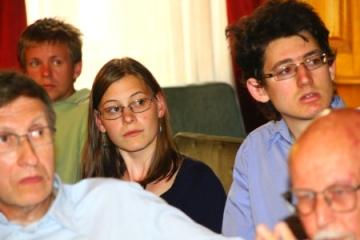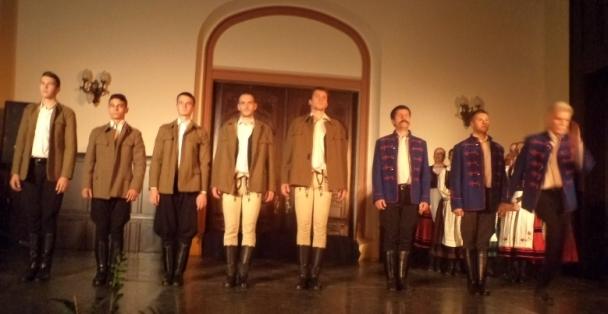Violence in the Reflection of 100 years. An afternoon of debate on the First World War or as contemporaries called it „The Great” War with representatives of several countries all speaking in Hungarian. On the occasion of the 100th anniversary of the assassination in Sarajevo the question on what the exact circumstances surrounding the outbreak of the First World War is particularly valid.
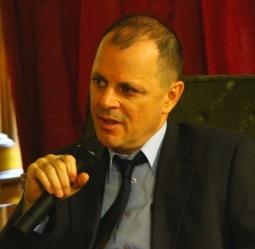
Géza Gecse (Aspektus):
– Violence in the Reflection of 100 years. An afternoon of debate on the First World War or as contemporaries called it „The Great” War with representatives of several countries all speaking in Hungarian. On the occasion of the 100th anniversary of the assassination in Sarajevo the question on what the exact circumstances surrounding the outbreak of the First World War is particularly valid.
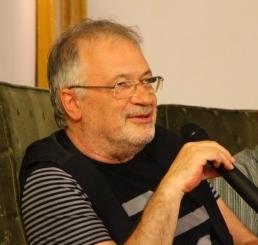
András Gerő (Budapest):
– Tisza’s role, or rather his thoughts were that the primary priority was the integrity of Hungary’s borders. He feared that in a conflict situation Romania would occupy Transylvania. Hungary’s territorial integrity was in danger and this is why he feared the war, although his position was that war was necessary, just not at that time. And he said literally, rather cynically, that a subterfuge can always be found. He didn’t feel that the circumstances were diplomatically ripe for a war. In dramaturgical terms the Monarchy was forced to take action. Just think, the legitimate heir to the throne is murdered. This murder has verified links also to Serbia. There are threads leading to the Serbian nation. Something had to be done. It doesn’t follow that a war must be unleashed but steps must be taken. And behind Serbia there stands Russia. Although the Russians also thought, and here there was a misunderstanding about the situation, that something must be done with Serbia, particularly in the event of support by Germany. This was the idea. The Russians weren’t prepared for a war anyway. It takes a long time for this huge country to prepare for war and mobilize her army. It was thought that Serbia would be quickly dealt with, thus the statement by Kaiser Wilhem “our victorious soldiers will be home before the leaves fall from the trees”.
Géza Gecse (Aspektus):
– How do the Finns see the outbreak of the First World War? The assassination by Gavrilo Princip?
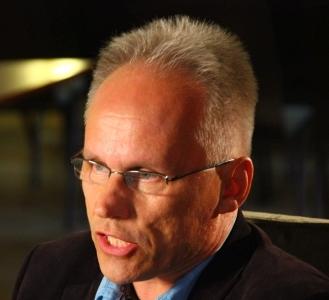
Heino Nyyssönen (Tampere):
– The assassination meant nothing. Sarajevo and the Balkans were far from Finland. The World War seemed far off somewhere else. Up until 1917 Finland was still living in the golden age of peacetime. But after 1917 a very bloody civil war broke out, 30-40 thousand dead.
Géza Gecse (Aspektus):
– How has Romania’s relationship changed towards the First World War, to the Trianon Peace Treaty in recent years?

Attila Hunyadi (Cluj-Napoca):
– The Romanian historical canon for a long time was that the Romanian successor state celebrated the Treaty of Trianon as a victory and a gain. This has been the case up unto the past few years. The diplomatic skirmish in recent years has been the reason that the Romanian Foreign Ministry in official communiques congratulates Hungary on the anniversary of the Treaty of Trianon. Many find this cynical but at the same time the Romanian Foreign Ministry stresses that this Treaty is the “birth certificate” of the modern Romanian state.
Géza Gecse (Aspektus):
– What is the position of the Czechs regarding the appearance of mass violence in the First World War and to World War I in general?
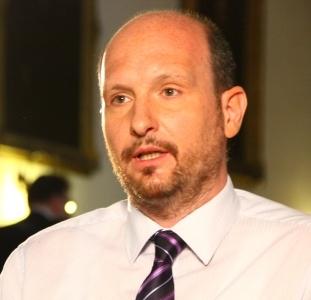
Andrej Tóth (Opava):
– The Czech people essentially received their own army from this violence, from this war. An army which they politically lead and built. They received their own nation, they received democracy, civil society, but they knew that war was the only tool with which they could gain all this.
Géza Gecse (Aspektus):
– How do the Romanians see Gavrilo Princip from whose act of assassination and the ensuing war gained more than they could have imagined.
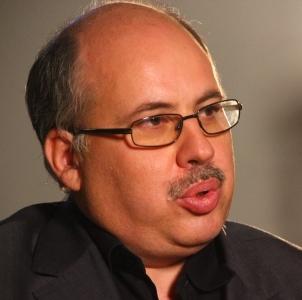
Ottmar Trasca (Cluj-Napoca):
– Romanians took note of the assassination committed by Gavrilo Princip as a fact, but they didn’t attribute much importance to the event. They do, however, admit that the assassination which brought on the First World War was what the Romanian political elite had been waiting for in order for them to realize their nationalist ambitions.
Gecse Géza (Aspektus):
– The Estonians gained an independent state from the First World War. To what degree do they see a correlation between the outbreak of the war and their own independence?
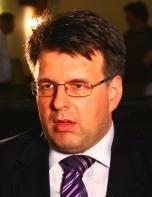
Vahur Luhtsalu (Tallinn):
– Estonia was not affected by the war. The events of the First World War did not take place on Estonian territory. Of course the Germans occupied Estonia for less than a year, but there was no resistance and Russia at that time had fallen apart. The Estonians can thank their independence to two facts: 1. that Russia, the Russian Empire disintegrated and 2. revolution broke out in Germany which forced the German army to evacuate Estonia.
———–
Gecse Géza (Aspektus):
– Naturally at the Aspektus debate afternoon held on June 28th, 2014 we could not avoid the topic of “the Sarajevo assassination en route to world war”. How do Hungarian historians see this question differently, this assassination by Gavrilo Princip. What can we add to the subject?
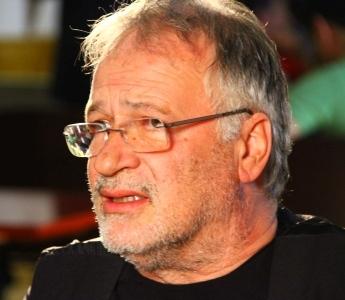
András Gerő (Budapest):
– Nothing new has come out regarding the assassination, since the event itself occurred and the following court proceedings. Basically only the interpretation of the events has changed somewhat. From a Hungarian perspective one can observe a certain emotional ambivalence. On the one hand the Hungarian historical narrative has always viewed it as an assassination and has never gone into the “hero or terrorist” debate. The emotional ambivalence is where heir to the throne Franz Ferdinand, and this was well known to the contemporary political elite, had wished to transform the Monarchy after his ascent to the throne, which would have done away with Dualism as a structure. He would have broken up Hungary’s territorial unity. Franz Ferdinand represented an expressly pro-Slavic concept. He had planned for independent administrative territories for the Slavs in the southern and northern regions of then Hungary so that on the one hand it’s a twist of fate that he was killed in the name of Slav nationalism. And from the point of view of Hungary, it means simply that he was not liked in Hungarian territory. So there was an emotional ambivalence, an emotional distance here.
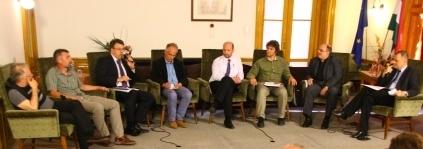
Géza Gecse (Aspektus):
– So Hungarians should have been happy to hear of the murder.
András Gerő (Budapest):
– This is so true that an Austrian novelist wrote in the novel The Radetzky March that in one of the garrisons of the Monarchy in Galicia, Hungarian officers broke out champagne at the news.
Géza Gecse (Aspektus):
– And by comparison my grandfather when he was 17 years old lied that he was 18 in order to join the army to fight on the Russian front. And he was happy to do it and this was typical of Hungarian public opinion, and elsewhere as well.
András Gerő (Budapest):
– Yes not only in Hungary. I wanted to add this, although this is not related to the assassination but to the war. It remains a mystery to me to this day that everyone all over Europe went crazy. Not only Hungarians went exuberantly to war, this was true of all nations. And while no one could say why there would be a war engulfing all of Europe and spreading to other continents, as they called it at the time “The Great War” what we call now the First World War, I can say that in a metaphorical way Europe was intoxicated. If one had asked the leadership of the Monarchy what did they wish to accomplish with this war they would have said “to regulate Serbia”, which is not enough for a European war. The Germans, and Sebastian Heffner writes of this, could not even say what their military objectives were, other than to occupy Belgium. The Russians could not say either what they wanted. So we had a situation where everyone was enthusiastic, they lost all ability to reason from this nationalism, and this happened all at once. I believe human stupidity is a molder of history. The outcome here was that the Monarchy was forced to respond to an assassination and from this came a world war and no one thought that this would last for four years with a death toll of several million. They thought what Kaiser Wilhem had said: Our victorious soldiers will be home before the leaves have fallen from the trees”. It didn’t happen this way.
Géza Gecse (Aspektus):
– If we come back to the assassination and to the war I think our Baltic colleagues may view the matter differently.
Vahur Luhtsalu (Tallinn):
– Estonian historians don’t particularly address the assassination by Gavrilo Princip. Nearly a hundred thousand Estonians were drafted when the First World War began. At that time the entire population of Estonia was approximately 1 million. The military training they received strengthened the nationalist sentiments in the Estonian soldiers and made them think of establishing their own country.
Géza Gecse (Aspektus):
– How does Heino Nyyssönen see this question because outside Poland the other area of conflict within the Russian empire was Finland and they were let go almost immediately. One could say that the First World War was a good thing for Finland.
Heino Nyyssönen (Tampere):
– Good or bad that is a dificult question. The price was great. A civil war broke out in Finland between the reds and the whites. It’s hard to say whether this should be celebrated or not.
Géza Gecse (Aspektus):
– I think that for the Slovaks their view of the assassination and relationship to Gavrilo Princip is particularly interesting, it is basically doesn’t exist. It’s different from the Czechs. What can Attila Simon tell us about this.
Attila Simon (Komarno)
– Very little if your question is what relationship the Slovaks have towards Gavrilo Princip. As you said, there is none. For the Slovaks the First World War means nothing. The topic is scarcely addressed in public education. For Slovaks the First World War begins at the end of 1918 when Czechoslovakia is formed. For them, that means that they were finally able to be free from the 1000 years of Hungarian enslavement and a nation is formed where there was greater freedom for them to develop as a people than before. So the Slovak historical narrative doesn’t really address the First World War, which is understandable. When a nation wishes to identify with a particular historical course of events then the points of connect where there are special interests must be found and there were none for Slovaks in this war due to their position within the Hungarian state system. Or it is necessary that there be heroes, either positive, negative or tragic with which public opinion can identify and there is not one single Slovak person known for any outstanding feat in the First World War, say a famous politician or military leader. The First World War means for them, which was quickly recognized by Slovak political leaders in 1914, that a new opportunity had opened for the settlement of the Slovak question. Naturally at that time they thought this would be within the framework of the Hungarian nation, or on a greater scale within the framework of the Monarchy. This new opportunity was created by the emigré community which was mostly Czech, the emigrés in Masaryk’s circle, including for instance Štefanik, who represented the Slovak position and who comes nearest in approaching an important military personality of World War I amongst the Slovaks. He was an aviation officer with French nationality holding high military office who actually took part in the war and his task within the emigré community was to organize the Czechoslovak legions which were to assist the Czechoslovak emigré community in being recognized by the Entente as an ally and so as victors in the event of victory, and as such they would receive their share.
Géza Gecse (Aspektus):
– I think the Czechs react totally differently to the situation. It is if they celebrate Gavrilo Princip almost as intensively as the Serbs do.
Andrej Tóth (Opava):
– I don’t agree. I don’t think June 28th means anything at all for the Czechs. There were scarcely any events or memorials commemorating June 28 this year. I have been to many conferences related to World War I but only in Hungary and abroad. The year of 1918 is the most important for the Czechs. And it is not often mentioned that it was the Austrians who were the first to leave the Monarchy. Already on the 21st they met in the National Assembly and by the time Czechoslovakia declared its independence on (October) the 28th the Monarchy essentially did not exist.
Géza Gecse (Aspektus):
– But today the official Czech position traces back the birth of the country to the First World War, no?
Andrej Tóth (Opava):
– I don’t think so. The Czech people were not then as militarized, even today. This is a Czech national characteristic. They didn’t really speak of the war. Certainly Masaryk as a philosopher began to consider the war only after 1914 and the discourse changed to the point where the war and violence achieved legitimacy when they said that with war and violence they will be able to further their national development. The Czechs didn’t win their independence with war but with diplomacy in Paris, Washington and London.
Géza Gecse (Aspektus):
– The Romanian position is interesting, unlike the Serbs, who treat this terrorist as a hero.
Ottmar Trasca (Cluj-Napoca):
– The Romanian historical narrative of course addresses the assassination committed by Gavrilo Princip but they don’t attribute much importance to it. It was registered as an event by means of which Romania was able to realize her national aims. Romania decided to enter the war in 1916. In recent years certain critical views have been expressed according to which Romania’s entrance into the war was governed more by emotions than by judgment and the consequences to this became quickly clear, particularly in 1916.
Attila Hunyadi (Cluj-Napoca):
– Neither Italy nor Romania entered the war on the side of the Triple Alliance, on the contrary they entered the war against them, in one, respectively two years later in 1916 because the Entente promised them more than they could have received. The other question concerning the military aims: István Tisza at the Dual Ministry Council raised the question of what will we gain with this war? Gaining new territories when of the 21 million people of the Monarchy only half or even less claimed Hungarian as their mother tongue? Hungary would enter an even more unfavourable statistical position. Therefore the Monarchy could gain only newer ethnic territories, in the best case scenario. In the one short month from the assassination to the sending of the ultimatum until the outbreak of the war Prime Minister István Tisza opposed the war until the very end. Nor did he separate this from the nationality issue. In the preceding decades and following the turn of the century he had met with the elite from Transylvania and the Banat on several occasions and paradoxically they had not asked for secession but instead for the rounding off of county borders and basically what Hungarian minorities across borders are requesting today: territorial, or at least cultural, linguistic and educational autonomy, which by the way the churches had had in accordance to the 1868 laws on nationalities but by then that was no longer enough for them.
András Gerő (Budapest):
– The German army was deep into Russian territory. Russia was a loser in this war. This is clearly demonstrated by the 1918 Brest-Litovsk Peace Treaty which was a very humiliating peace treaty for the Russian, by then Bolshevik government. The outcome, and this is the dilemma of the national historical narrative in a given case, say that of the Baltic states and of the Finns, and it has come out in our debate here, that there is no awareness of the fact that without the defeat of Russia they would not have gained their independence.
Heino Nyyssönen (Tampere):
– Lenin guaranteed independence to the Finns, Kerensky did not. In any case the weakness of Russia was significant.
Attila Simon (Komarno):
– For instance if one reads the 1915 issues of the Nyitra Royal County Observer one can find a series of battlefield dispatches from a Hungarian named Tiso József an army chaplain of the Trencsen regiment in essentially a pro-Monarchy nationalist spirit. Now this Tisó József army champlain later in 1939 became president of Slovakia under the name of Jozef Tiso. Later the break occurred, which occurred with every nation around 1917 when they had had enough of the war, when Czechs and Slovaks took part in relatively large numbers in the uprisings of 1917 and 1918 and they were then far from being good soldiers. Interesting is how the Hungarian press changes towards them. When in 1917 the Czechoslovak, or rather Czech plans are made public in the press: that a Czech nation needs to be formed with the so-called Czechoslovak peoples as they called the peoples living in the northern territory of historical Hungary. In the Hungarian press these “Pan-Slav Slovak agitators” immediately become Slovak politicians who are now seen as a nation. Formerly they were called the „tót” people, not a nation. Now the aim was to let them feel they are a separate people, not a common one with the Czechs. So the position of the Slovaks changes towards the war, and the position of the official Hungarian political leadership and the press towards the Slovaks also changes.
András Gerő (Budapest):
– I would comment that Tisza did not oppose the war up to the end. It is known that in 1914, until the 15th of July he opposed the war but when he got the guarantee from the Germans, and the pledge by the Romanians to remain neutral he said “let’s begin” and from that point on was consistent only in saying that the Monarchy should not want to gain Serbian territory.
Géza Gecse (Aspektus):
– The Brusilov Offensive lasted from the beginning of July to September 1916 and ended with a death toll of at least 2 million, by some accounts 3 million.
Vahur Luhtsalu (Tallinn):
– When you say such numbers it’s terrible to hear them but one must agree that in order to wage war one must have first the war in one’s mind as well.
Heino Nyyssönen (Tampere):
– I checked several “light” resources on the death toll of the First World War on Wikipedia and other sources as well. Hungarian sources put the death count at 19 million. Finnish sources at only 16 million. I don’t know how significant this is from this viewpoint. The Brusilov Offensive was 1.6 million. In any event it seems to be more than on the Western Front.
András Gerő (Budapest):
– The Finns believe that the point of origin for them was when they won independence in 1917. The Czechs and the Slovaks put this to be at 1918, for the Baltic countries it’s pretty much the same 1917-1918. For the Romanians 1918 provided them with a huge victory. The Hungarians act as if the story began with Trianon, the Hungarian narrative is that some terrible injustice happened with the Hungarians at Trianon.
Géza Gecse (Aspektus):
– A terrible injustice happened.
András Gerő (Budapest):
–Yes, yes this is true, but as I remarked in the introduction historical Hungary could exist only because there was an agreement with the Habsburgs which we call The Compromise (of 1867) and when there are no Habsburgs and the Empire ceases to exist from that point on historical Hungary is questionable. We know that in 1918 a series of National Councils are formed, such as in the case of Czechoslovakia which declared its independence. What did the Hungarians think? That there would not be such a thing on the territory of the Czechoslovak nation as long as it was a part of the Hungarian nation? The Transylvanian Romanians declare their seccession from Hungary in 1918. The Treaty of Trianon, although very unfairly, sanctified something that had already occurred. But Hungarians believe that their defining point is not even 1918 but Trianon. So I wish to say, and it seems to be a common point among us, that we also have an amnesiac culture, not only a culture of remembrance, but one of amnesia as well. We always wish to remember only either what was painful, such as Trianon, or what was successful such as 1917 or 1918 as in the case of the Finns or in the case of Romania.
Aspektus


